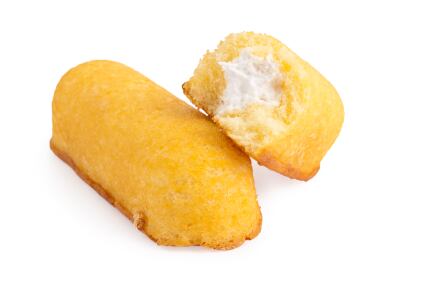Pinar Hosafci, food analyst at Euromonitor International, said if rumors of an estimated $2bn Hostess sell-out to Grupo Bimbo, Flowers Foods, Post or Aryzta came true, there could be a competitive shift in the marketplace.
“If the new owner is already present in the baked goods market and has a high presence in cakes and pastries, it will strengthen its existing portfolio which would probably give it better bargaining power with big retailers,” Hosafci told BakeryandSnacks.com.
“Cakes, pastries and bread are categories where private label presence is very high, so it’s important to have your significant market share among private label pressure,” she said.
However, Lamine Lahouasnia, head of packaged food research at Euromonitor International, said overall market impact would be softer than the initial hit in 2012 when Hostess liquidated.
“It will be a slightly smoother transition, just because the number of brands and revenues generated by the private equity-owned company isn’t the same as it was prior to its failure. Given that Grupo Bimbo took some, Flowers Foods took some, and others – because it’s been disassembled, whatever impact it might have will be at a much lower level,” he said.
Twinkies could ‘go global’ but also change…
However, Lahouasnia said there could be some big changes in that there was a high chance Hostess Brands could be taken beyond the US and Canada under new ownership. Hostess Brands recently expanded into the Middle East and Africa via a partnership with Egyptian bakery Edita, but he said there was potential to bring the portfolio into Latin America and Europe - particularly considering the footprint of some rumored suitors.
“If we look at Bimbo, for example, with their huge global footprint, one of the potential things that might come out of this is Hostess could go global and previously it’s been restricted to US and Canadian markets,” he said.

Hosafci said if that were to happen, it would likely see some form of brand or product change.
“Usually when companies enter a new market, they don’t necessarily go with their existing brand; they always tailor the brand – change the packaging, sugar content, or something; not a major change, but a slight twist,” she said.
Something the new owner would have to consider, she said, was differing taste palates.
“American consumers and European consumers are not necessarily the same. There might be some similarities, but Americans are more about donuts and sweet, heavy bakery products whereas Europeans prefer lighter varieties.”
Marketing bang but brand protection
However, Hosafci said whoever wanted to take the brands into new markets would have to heavily invest in marketing.
“You need a time – an investment time – at the beginning to make consumers familiar with the brand and that means a lot of marketing spend,” she said.
Lahouasnia said there could be potential to reduce marketing spend slightly by playing on the fact Twinkies was already an iconic brand.

“Twinkies is one of those brands that a lot of people will be subtly aware of because it has popped up on US TV shows and films. In some ways, that’s a benefit – it means it’s a known brand even if it’s not available in the market. That’s something that definitely has value to companies – you wouldn’t necessarily have to invest so heavily in marketing.”
However, he warned it would be counterintuitive to change the brand’s identity too much.
“Hostess Brands obviously has its own unique identify, and that’s an identity which has been built up over decades. Whoever takes it on should be very conscious of that brand equity and new ownership should be very careful with smothering the business or integrating it into its wider business too soon,” he said.
